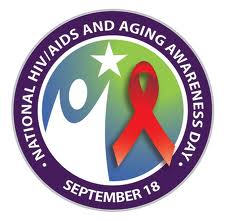 |
| He looked great in a tux, too |
There’s plenty of anecdotal evidence: stories you’ll
read in the book. What I wanted was something more objective. Maybe I needed to
conduct my own survey, a daunting prospect I was not prepared to seriously
consider. So I ignored the issue for a couple days. As luck would have it, just such a survey presented itself yesterday
morning.
You’ll learn more about the survey results in the
book, but one of the obvious truths in it was the evidence that we are happier
when we’re friends with our co-workers. Whether you love your job or hate it,
sharing the experience with others makes our lives a little less stressful.
Celebrating promotions, commiserating over a nasty boss, working on a project
together: all are enhanced by friendship.
When I worked in the AIDS community of Chicago in
the late 80s/early 90s, I did my best to not make friends with co-workers. It’s
not that they weren’t nice people (though some weren’t). I knew their HIV
status, and back then, being HIV+ was essentially a death sentence. I was never
afraid of them or dismissive of them (though I did worry about my assistant’s
ability to complete some of the more physical tasks of his job). But I was
afraid of getting close, of making friends with someone I spent at least 10
hours a day with, someone I would certainly outlive.
I’m embarrassed to say I’m grateful that Steve and I
were no longer working together when he died. To this day, he remains one of the
sweetest, kindest, most thoughtful men I’ve ever known. And while I was glad to
visit him, enabling his partner to take a brief break from caregiving, I knew I
would not have wanted to watch his decline every day at work.
Despite my best intentions, I did wind up making
friends with some of the people I worked with then, though most of them were
volunteers who were not around all day,
every day. I’m still friends with some of them. We rarely talk about that time,
because if we do, we inevitably find ourselves sharing a story about Steve or
Ernest or someone else who’s been dead now for decades.
Am I sorry I didn’t make more friends at work? I’m
surprised to admit I am. There were people I knew in the community – not actually
in the office – who I only knew a little. We weren’t friends by any definition.
But I regret now that I didn’t take the time, didn’t put aside my own fear of
losing them. There’s no question that my grief would’ve been greater when they
died. But my work life would’ve been a hell of a lot richer.




